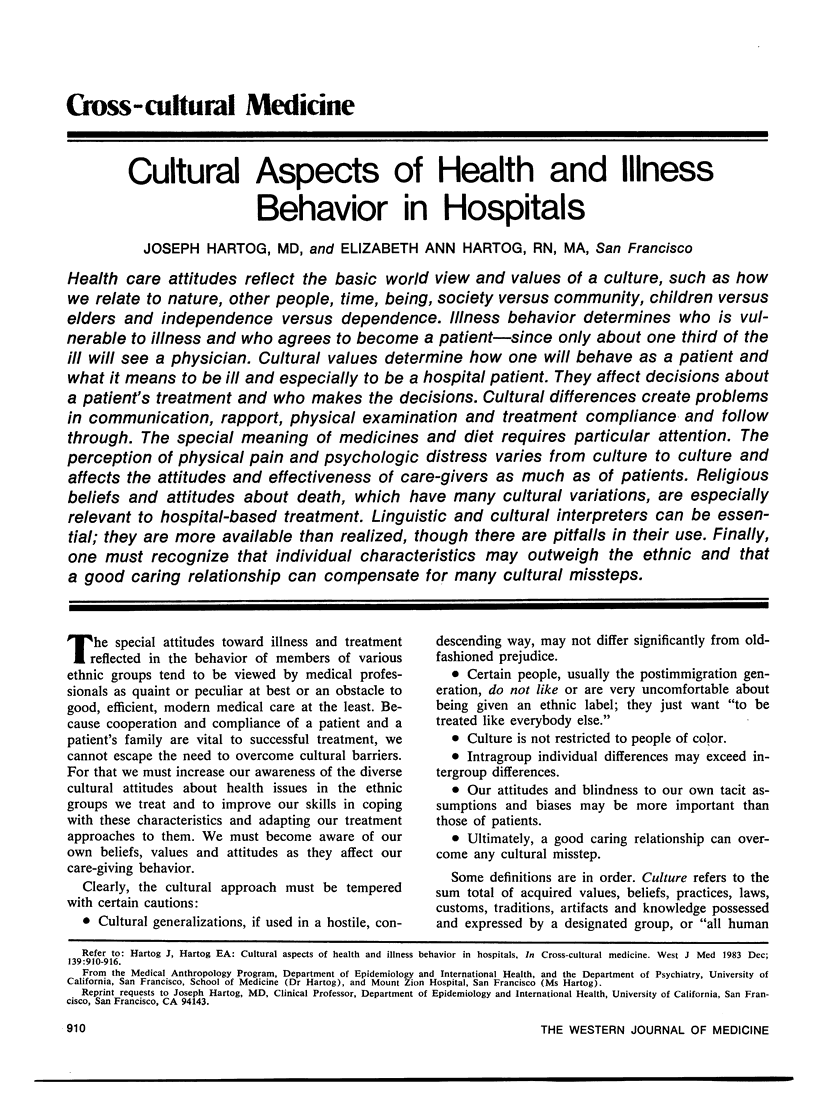Abstract
Health care attitudes reflect the basic world view and values of a culture, such as how we relate to nature, other people, time, being, society versus community, children versus elders and independence versus dependence. Illness behavior determines who is vulnerable to illness and who agrees to become a patient—since only about one third of the ill will see a physician. Cultural values determine how one will behave as a patient and what it means to be ill and especially to be a hospital patient. They affect decisions about a patient's treatment and who makes the decisions. Cultural differences create problems in communication, rapport, physical examination and treatment compliance and follow through. The special meaning of medicines and diet requires particular attention. The perception of physical pain and psychologic distress varies from culture to culture and affects the attitudes and effectiveness of care-givers as much as of patients. Religious beliefs and attitudes about death, which have many cultural variations, are especially relevant to hospital-based treatment. Linguistic and cultural interpreters can be essential; they are more available than realized, though there are pitfalls in their use. Finally, one must recognize that individual characteristics may outweigh the ethnic and that a good caring relationship can compensate for many cultural missteps.
Full text
PDF






Selected References
These references are in PubMed. This may not be the complete list of references from this article.
- CANNON W. B. Voodoo death. Psychosom Med. 1957 May-Jun;19(3):182–190. doi: 10.1097/00006842-195705000-00003. [DOI] [PubMed] [Google Scholar]
- Dimsdale J. E. Emotional causes of sudden death. Am J Psychiatry. 1977 Dec;134(12):1361–1366. doi: 10.1176/ajp.134.12.1361. [DOI] [PubMed] [Google Scholar]
- Harwood A. The hot-cold theory of disease. Implications for treatment of Puerto Rican patients. JAMA. 1971 May 17;216(7):1153–1158. [PubMed] [Google Scholar]



